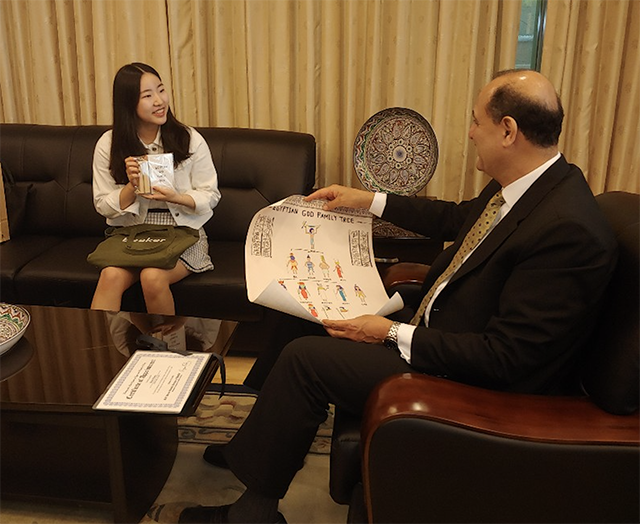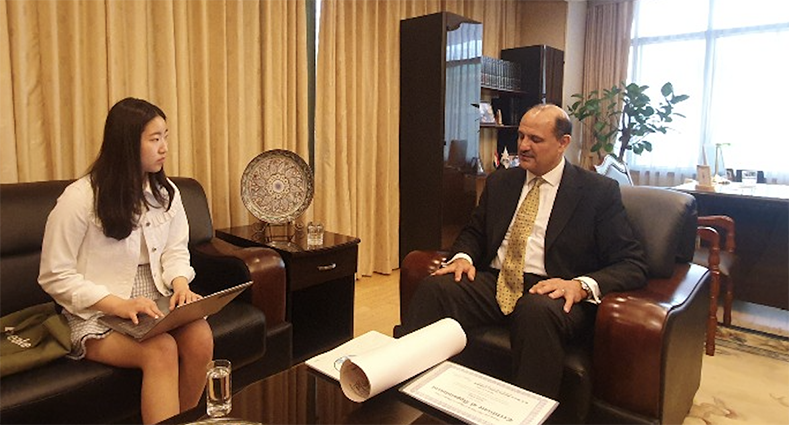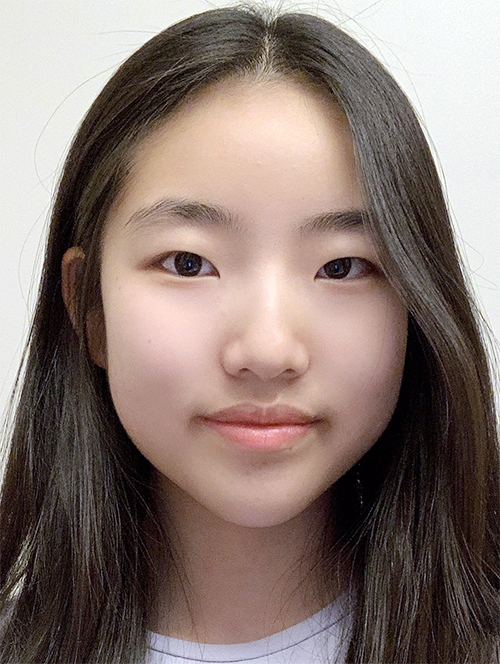As a junior ambassador for the Egyptian embassy in Korea, I was recently invited to the Egyptian embassy to conduct an interview with the ambassador of Egypt to Korea, Dr. Hazem Fahmy. After completing his doctorate in economics from New School University, Fahmy started his career at the Egyptian Ministry of Foreign Affairs, where he served on the Egyptian Permanent Mission to the United Nations in New York. At the UN, he was elected Vice President for Africa on the Executive Board of the UNDP and worked for UN Secretariat at the Financing for Development Office and at the Executive Office of the Secretary-General. In 2014, Fahmy was appointed as the Secretary-General of the Egyptian Agency of Partnership for Development and was elected by the African Union to represent North Africa on the Steering Committee of the Global Partnership for Effective Development Cooperation in 2015.
My role as a junior ambassador is to promote Egyptian culture in various media platforms through writing and art. Some of my work includes an article about ancient Egyptian culture and a poster of the faimly tree of Egyptian gods. Using the drawings from this poster, I also created a calendar that I was very delighted to see on the ambassador’s desk on the day of my interview.

Before getting started, I felt that we had to address the common global issue experienced by both Egypt and Korea. With the ongoing COVID-19 pandemic, the ambassador mentioned that “the Egyptian government is making aggressive moves” to slow down the spread of the disease. One of these moves includes a strict curfew which will limit movement during night hours until further notice from the government. “The main problem with Egypt is that we are lacking the equipment necessary for testing.” Fahmy also praised Korea for its quick response to the crisis and expressed hopes that Egypt could recover from this outbreak. He acknowledged the widespread impact that the pandemic had on both domestic and foreign affairs mentioning that “a lot of projects and meetings have been postponed or canceled due to the pandemic such as building the new administrative capital and the largest museum dedicated to Egyptian civilization, but also the visit of President Moon to Egypt.”
With my interest in sustainable development and tourism, I decided to ask the ambassador some questions regarding the cooperation between Egypt and Korea in fields related to water sanitation and also about Egypt’s policies related to the environment. On potential plans to cooperate with the Korean government to improve water sanitation and related infrastructures, the ambassador showed a keen interest in Korean technology. “We are hoping to benefit from a lot of the modern technology that Korea has in all aspects of living, but in particular, artificial intelligence,” the ambassador said. He added that he had “already contacted some officials in Korea such as the Minister of Science and Technology” to get on the development of Egypt’s new administrative capital. He was also keen to show his appreciation for Korea’s participation adding that “Korea is technically much more advanced, but once countries start cooperating, there is a mutual learning.”
Renewable energy is a field where Korea has much to learn from Egypt. I was most impressed to learn that Egypt has the largest solar energy plants and that the government is investing heavily in wind power energy. The ambassador stressed that the key goal of investing in renewable energy is “to cut carbon emissions” which is an important step in moving toward a more sustainable form of tourism. Waste recycling, according to the ambassador, is another area of interest considering how much waste is created by tourists each year. He also raised the need for future cooperation between the two countries in sustainable tourism to make sure mutual learning takes place between Egypt and Korea. “Egypt has a very young population,” he says, “which is eager to learn and work”. In fact, there are many Egyptian students currently studying in Korean universities and working in research and development sectors in Korea. He also explained that “Samsung and LG have factories in Egypt and have invested in a university that will build a labor force focused on technology.” With so much exchange in the private sectors of both countries, the Korean tourism industry is also expected to reap benefits.

Lastly, I noted that Korean students were not aware of Egypt as an attractive tourist destination and asked for advice on how to best promote Egyptian tourism among Koreans. The ambassador stressed the long history of Egypt and how the country was influenced not only by Pharaonic civilization but also various civilizations such as the Roman and Assyrian Empires, which allowed Egypt to have one of the oldest Christian churches and as well as many beautiful mosques. Fahmy named already well-known tourist sites like the Giza Pyramids, world-class resorts near the Red Sea, safaris, and the world’s largest archaeological museum and also mentioned how students can benefit from the fact that Egypt is very much “the center of the old world” and a “strategic location” where Egypt and Africa intersect.
For students wishing to expand their world view, Egypt can be a great starting point to explore both the Middle East and Africa. Personally, I am very interested in the ancient culture of Egypt and would like to visit the pyramids, sphynx, and Abu Simbel. Perhaps you might want to plan on traveling to Egypt one day to experience its real beauty.

Rayoung (Madeline) Lee
Junior (Grade 11)
Seoul Foreign School

